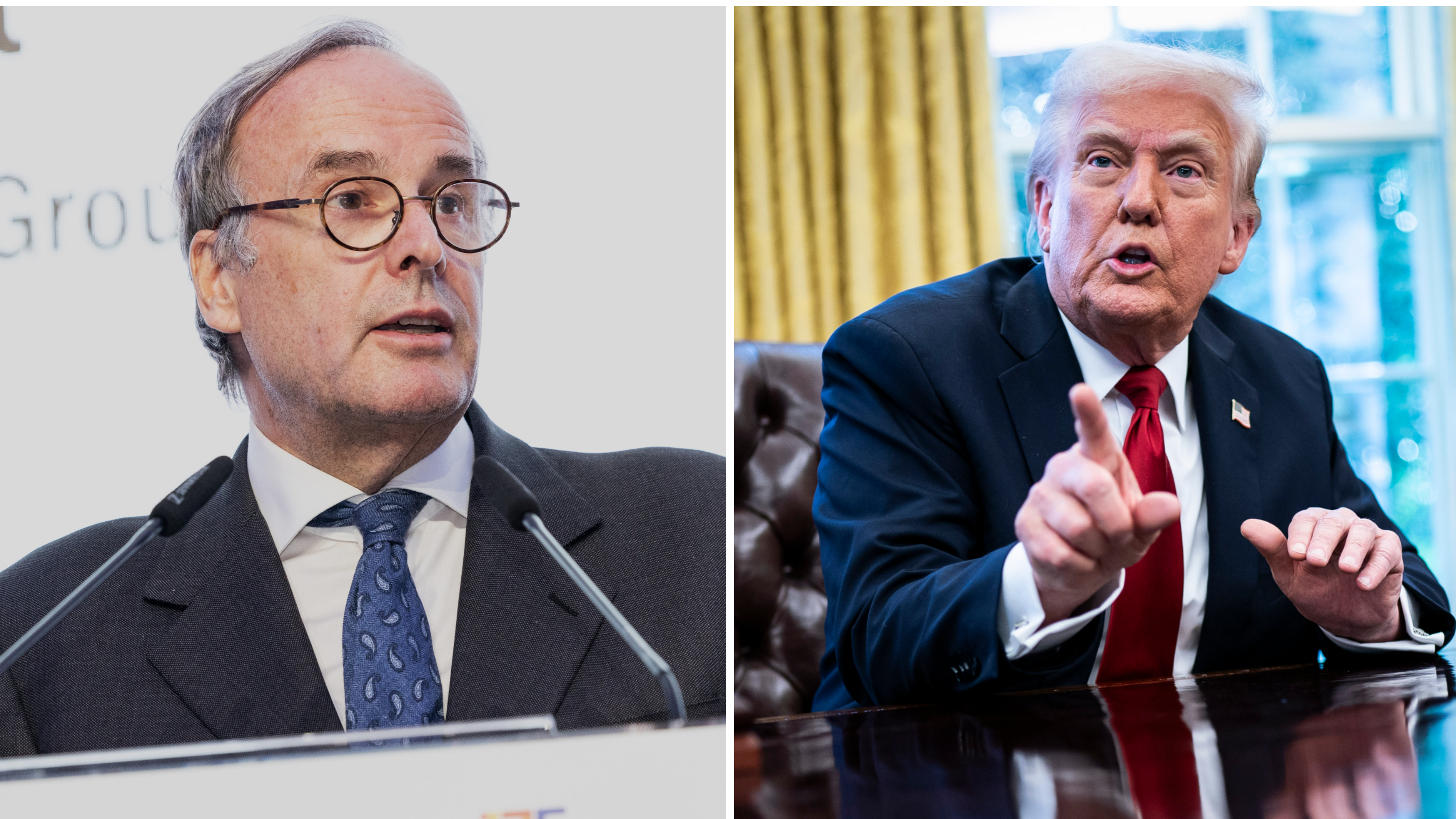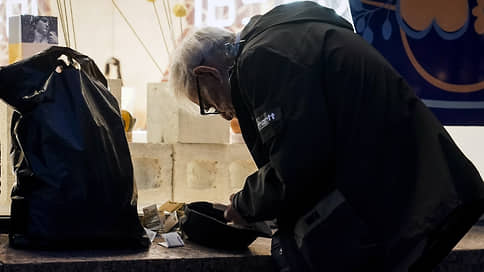« Europe is much stronger in sight than people believe »

« Europe is being attacked, » says Belgian industrialist Thomas Leysen. « I think it’s important to take responsibility. »
Leysen, President of the Mediahuis Group, is at the forefront of a coalition of investors who defend themselves against oligarchs and put their companies in the service of protection of democracy-at a time when it is increasingly threatened.
His father, André Lysen, introduced the family to the newspaper business by taking over the publications of the bankrupt standaard group. Mediahuis still gives « De Standaard“And other titles in Belgium and expanded to the Netherlands, to Germany and Ireland.
In Luxembourg, Mediahui’s owner of the « Luxemburger Word » and the associated brands are « Luxembourg Times »,, “Virgule« , « Contacto »,, Radio Latina and « Télécran »which was taken over by their former publisher Saint-Paul on April 24, 2020.
Outside of the Mediahuis conglomerate, Leysen was co-founder of Pluralis, an investment vehicle that devoted to the rescue of small European newspapers before taking over by oligarchs and autocratic regime.
What is the task of pluralis?
Thomas Leysen: It is a fund that invests in media companies where there is a risk that they will be taken over by political actors. We have formed a coalition of individuals, foundations and companies. Together we have raised 50 million euros. Mediahuis and our shareholders are the most important donors. Pluralis does not provide financial help, but invests. Our goal is that the media companies in which we invest will become healthy companies. This is the best guarantee for a stable future. We have already made three investments in Slovakia, in Poland and in Croatia.
Not in Hungary?
Leysen: Hungary Prime Minister Viktor Orbán brought all the major media under his control. The only remaining independent voices in Hungary are smaller online platforms. It has become impossible to support them because they make themselves punishable if they accept foreign funds. Such an absence of multi -part in the media makes a change of power – a healthy characteristic of democracy – almost impossible. Fortunately, the struggle in other European countries has not yet been lost. A stronger opposition is formed even in Hungary.
Hungary changes constitution: man is either man or woman
So the fight with the oligarchs mainly takes place in Central Europe?
Leysen: In Slovakia we saved an important voice with Petit Press. Oligarchen had already acquired a minority stake and tried to get control for years, but they ultimately not succeeded. This fight started under the previous government, but now it escalates. The Petit-Press journalists are referred to by Prime Minister Robert Fico as « petzing Soros pigs » (editor’s note: the American philanthropic George Soros is also an investor at Pluralis).
In Croatia we invested in the independent news page Telegram. Croatia is not an authoritarian regime, but there is considerable pressure. Telegram covered a corruption scandal that led to the detention of 30 people. Among other things, it was revealed that the Ministry of Culture had bought a sailing yacht with EU funds. After this unveiling, all government spending on the Telegram platform was withdrawn.
What drives an industrialist to work for pluralism?
Leysen: Mediahuis is financially good. I had the feeling that we had to take responsibility together with our shareholders. I grew up with the conviction that a high -quality, independent press is important. As the chairman of Mediahuis, I do not always agree with everything that appears our title in « De Standaard », « NRC » or « De Telegraaf » or in others, but it is important that this journalism can exist and work independently. I have an apprenticeship as a lawyer. I am firmly convinced that a free press is an essential part of the rule of law.
They call the current time an « existential moment ». What do you mean?
Leysen: The alliance between the new American rulers and the autocrats that surround Europe represents a threat from outside, but there is also a danger from the inside. If some Member States give up the principles of the rule of law, the functioning of the EU itself is at risk. Hungary has already taken this path. Slovakia and other countries move in this direction. A change of power is still possible in these countries, but Hungary has shown how difficult it will be if the judiciary and the media fall victim to a guide with authoritarian instincts.
Luc Frieden: « It is not America that I love »
How serious is the threat?
Leysen: Europe is much more targeted than people believe. The two wings of the Trump coalition-the tech oligarches and the ideological Maga movement-are from scratch in Antie-European. Trump literally said: « The European Union was created to shit the United States ». And the tech industry was surprisingly behind it.
You got to know some of these famous billionaires. Were they shocked when they saw how they all king Trump?
Leysen: There are different cases. Someone like Peter Thiel has been fundamentally libertarian and anti -democratic for a long time. He also supported Trump eight years ago. Elon Musk Has made his choice during the election campaign. Then there were those who – in order to quote right -wing populists Steve Bannon – converted to Maga between 10 p.m. and 11 p.m. on November 5, when it became clear that Trump would win in Pennsylvania. Mark Zuckerberg belongs to this group.
« Nobody likes Trump, but people excuse him anyway, » Thomas Leysen says about the hiring of some entrepreneurs to the US President. Photo: The Washington Post via Getty Images
What led to this « conversion »?
Leysen: These people have a cosmic self -confidence. They believe they are above the law. You see an opportunity in America to reduce all forms of regulation. Trump is the tool for this. It is precisely because of these regulations they hate Europe. The last resistance to their uncontrolled market power and their unregulated AI investments come from Brussels. You can find yourself on the side of the Maga wing, which sees Europe as an ideologically reprehensible construct and allies here with right-wing extremists.
Trump shakes Europe. Is the naivety over?
Leysen: There is still confusion in business circles. Nobody likes Trump, but people excuse him anyway. You can hear things like « It is good that someone is cleaning up in the government every now and then ». The same people said two years ago that America was more competitive and efficient than we do. We seem to have forgotten how well the economy went under Joe Biden.
Are there many fans of Elon Musk in European business circles?
Leysen: What happens to the rule of law can no longer be denied, but many still see it as secondary. I’m not talking for everyone, but I already had heated debates with colleagues and friends. For me it is existential. So I spoke up.
They were accidentally on April 2, Trump’s « Liberation Day »in Washington. How did the business world react to the tariffs of the USA?
Leysen: That was another big shock. There is a deep discomfort about where the development is going, but the industrial companies are afraid to comment. They fear retaliation from Trump, who could target anyone he sees as an obstacle. The American press is still as free and as polarized as ever, but the business world is taciturn in public.
Why is there so little resistance?
Leysen: I assume that most business people are concerned about the rule of law, democracy and a certain degree of solidarity in both the United States and in Europe. But there is a clear bird-bouquet behavior when it comes to decaying democracy. For some it is pure self -interest: Trump is good for my industry, and when his opponents are intimidated, that’s the way it is. Others are just afraid. But for many it is a really difficult dilemma. If you deal with thousands of employees and account for shareholders, what do you do under this pressure?
What is your answer?
Leysen: It is easy to judge from the outside, but I found that some have more backbones than others.
This could look like the new populist world order
They are not known as a pessimist, but that doesn’t sound very rosy anymore.
Leysen: A pessimistic reading is quite possible: that authoritarianism will win in the United States and will be difficult to undo. In one Podcast The « New York Times » said Bannon that he was sure that Trump would be re -elected in 2028. The journalist pointed out that the constitution prohibits a third term, whereupon Bannon said: « We are working on it ». Another scenario is that Trump derails quickly, with bad economic consequences and a crashing stock market. If tariffs trigger inflation, some Republican MPs could be more afraid of their voters than of their president.
After the Second World War, many books on the betrayal of the major capital were written. How well is industry prepared today?
Leysen: Everyone has to ask their own moral compass. Sometimes the dilemmata are really difficult. A company always has to adapt to the country’s laws in which it works. This also applies in China, also to the companies for which I am responsible. We also follow US law in America. Companies do not have the legitimation of performing as a political driver. But for me, the rule of law in Europe is a red line.
Paul Peckels, CEO of Mediahuis Luxembourg, Thomas Leysen, Lydie Polfer, Mayor of the City of Luxembourg, Grand Duke Henri, Martine Reicherts, President of the Board of Directors of Mediahuis Luxembourg, and Fernand Etgen, former President of the Chamber of deputy, in 2023. Photo: Guy Jallay
The full interview first appeared in Belgian “De standaard“. Translation and editing: Cordula Schnuer.
To the person: Who is Thomas Leysen?
Thomas Leysen (64) is the chairman of the Mediahuis Group, which also includes the « Luxemburger Word », the material technology group Umicore and the Swiss-Dutch chemical company DSM company. He is a member of the European Round Table of Industrialists, the leading lobby group of industry in Europe. Previously, he was chairman of the KBC, the association of the Belgian companies and the Agoria technology association.
In addition to his business activities, Leysen is also an art lover. He is the chairman of the regent council of the Antwerp Museum Mayer van den Bergh. In 2021 he was a co-founder of the Plural Fund, which is committed to protecting independent media in Central and Eastern Europe before oligarchic takeovers.








